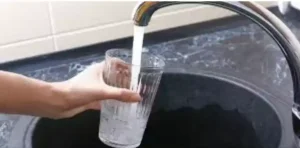8 Reasons why you should stop drinking water directly from the tap

While tap water is generally considered safe to drink in many parts of the world, there are several reasons why it might be advisable to avoid drinking it directly from the tap:
Contaminants: Tap water can contain various contaminants, including heavy metals, pesticides, pharmaceutical residues, and microbial pathogens. Although water treatment plants work to remove these contaminants, aging infrastructure or environmental factors can lead to contamination issues.
Lead Pipes: In older buildings, lead pipes or plumbing fixtures may leach lead into the water supply. Even low levels of lead exposure can be harmful, particularly for children and pregnant women, leading to developmental issues and other health problems.
Chlorine and Chloramine: Water treatment facilities often use chlorine or chloramine to disinfect tap water, which can impart an unpleasant taste and odor. Additionally, long-term exposure to these chemicals may have adverse health effects, such as disrupting the microbiome or contributing to respiratory issues.
Microplastics: Studies have shown that tap water can contain microplastics, tiny particles of plastic that are pervasive in the environment. These microplastics can leach harmful chemicals and may pose health risks when ingested.
Fluoride: While fluoride is commonly added to municipal water supplies to prevent tooth decay, excessive fluoride intake can lead to dental fluorosis, skeletal fluorosis, and other health issues. Some individuals may prefer to avoid fluoride or regulate their intake through alternative sources.
Hard Water: In areas with hard water, tap water may contain high levels of minerals such as calcium and magnesium. While these minerals are not harmful to health, they can cause limescale buildup in pipes, appliances, and fixtures, leading to decreased efficiency and longevity.
Environmental Concerns: Drinking water directly from the tap contributes to the environmental burden of plastic waste, as it often involves the use of single-use plastic bottles or disposable cups. Choosing alternative drinking water sources can help reduce plastic consumption and promote sustainability.
Taste and Odor: Even when safe to drink, tap water may have an undesirable taste or odor due to factors such as chlorine, sulfur compounds, or organic matter. Using a filtration system or opting for alternative sources of water can improve the taste and smell of drinking water.
While tap water is regulated to meet safety standards, individuals may choose to use filtration systems, bottled water, or other alternatives for peace of mind or to address specific concerns about taste, quality, or environmental impact.




